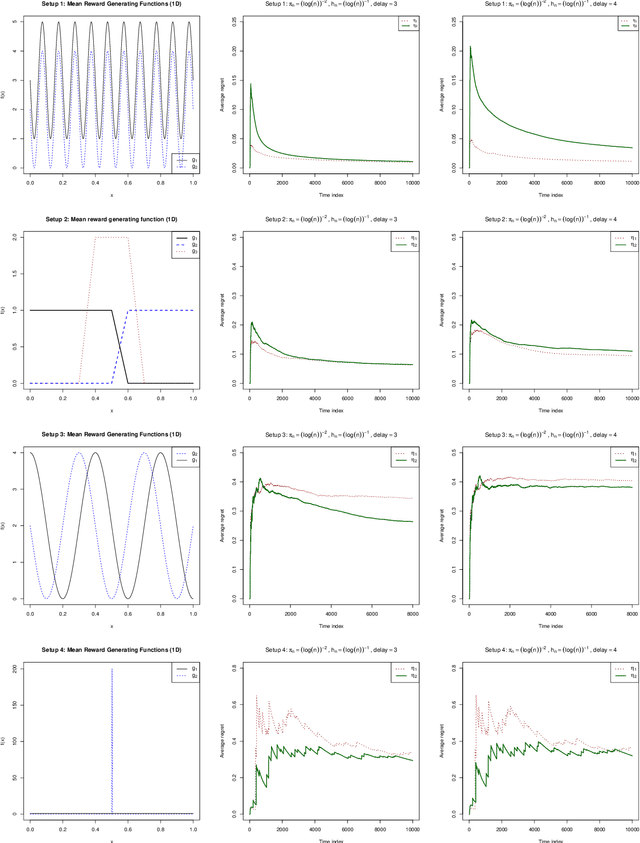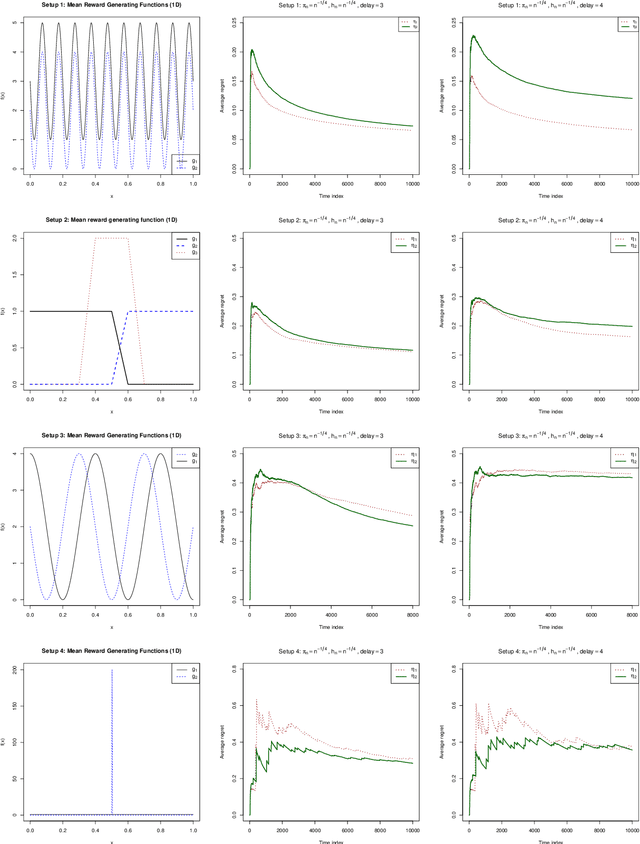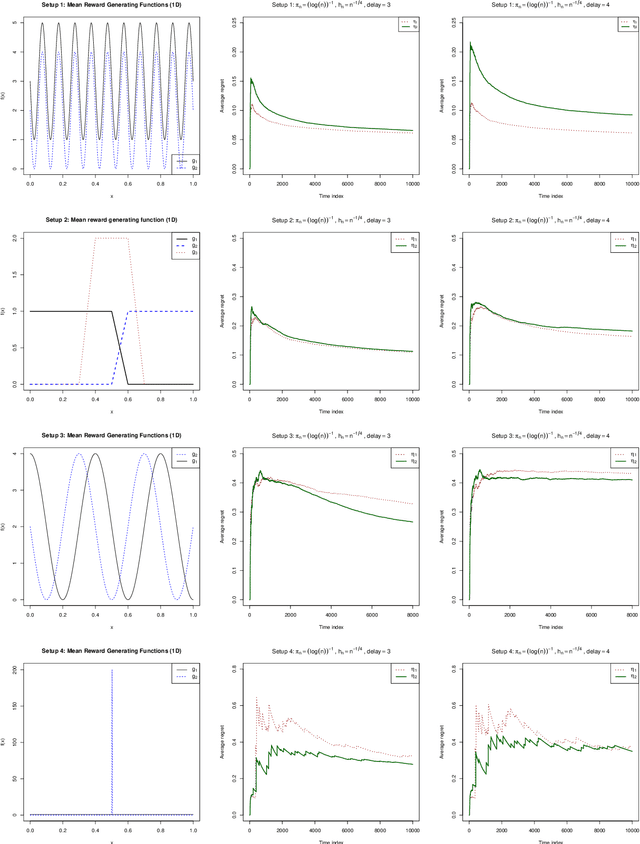To update or not to update? Delayed Nonparametric Bandits with Randomized Allocation
Paper and Code
May 26, 2020



Delayed rewards problem in contextual bandits has been of interest in various practical settings. We study randomized allocation strategies and provide an understanding on how the exploration-exploitation tradeoff is affected by delays in observing the rewards. In randomized strategies, the extent of exploration-exploitation is controlled by a user-determined exploration probability sequence. In the presence of delayed rewards, one may choose between using the original exploration sequence that updates at every time point or update the sequence only when a new reward is observed, leading to two competing strategies. In this work, we show that while both strategies may lead to strong consistency in allocation, the property holds for a wider scope of situations for the latter. However, for finite sample performance, we illustrate that both strategies have their own advantages and disadvantages, depending on the severity of the delay and underlying reward generating mechanisms.
 Add to Chrome
Add to Chrome Add to Firefox
Add to Firefox Add to Edge
Add to Edge